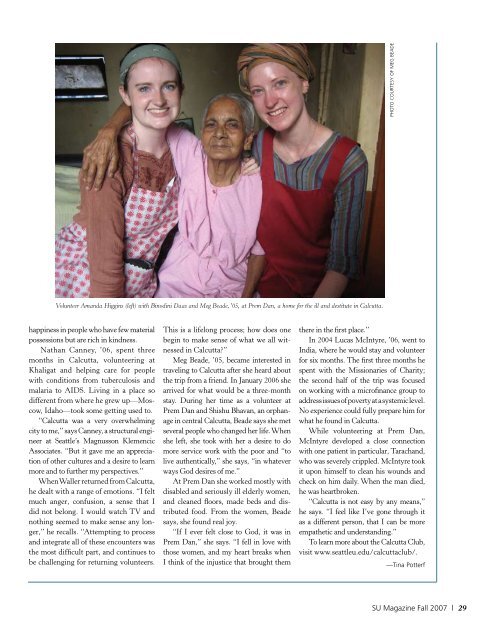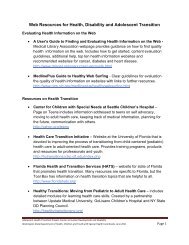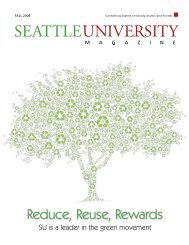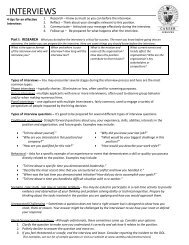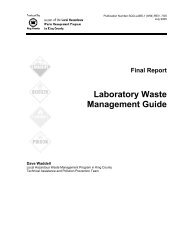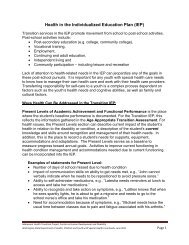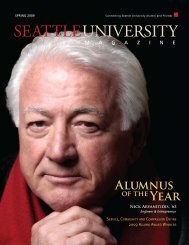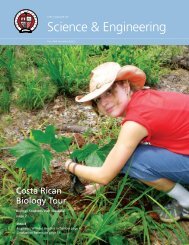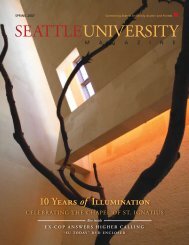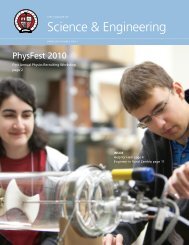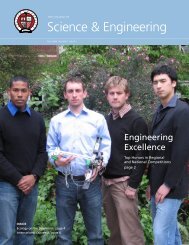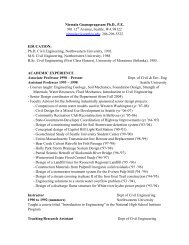Assessing How We Define Diversity - Seattle University
Assessing How We Define Diversity - Seattle University
Assessing How We Define Diversity - Seattle University
Create successful ePaper yourself
Turn your PDF publications into a flip-book with our unique Google optimized e-Paper software.
photo COURTESY OF MEG BEADE<br />
Volunteer Amanda Higgins (left) with Binodini Daas and Meg Beade, ’05, at Prem Dan, a home for the ill and destitute in Calcutta.<br />
happiness in people who have few material<br />
possessions but are rich in kindness.<br />
Nathan Canney, ’06, spent three<br />
months in Calcutta, volunteering at<br />
Khaligat and helping care for people<br />
with conditions from tuberculosis and<br />
malaria to AIDS. Living in a place so<br />
different from where he grew up—Moscow,<br />
Idaho—took some getting used to.<br />
“Calcutta was a very overwhelming<br />
city to me,” says Canney, a structural engineer<br />
at <strong>Seattle</strong>’s Magnusson Klemencic<br />
Associates. “But it gave me an appreciation<br />
of other cultures and a desire to learn<br />
more and to further my perspectives.”<br />
When Waller returned from Calcutta,<br />
he dealt with a range of emotions. “I felt<br />
much anger, confusion, a sense that I<br />
did not belong. I would watch TV and<br />
nothing seemed to make sense any longer,”<br />
he recalls. “Attempting to process<br />
and integrate all of these encounters was<br />
the most difficult part, and continues to<br />
be challenging for returning volunteers.<br />
This is a lifelong process; how does one<br />
begin to make sense of what we all witnessed<br />
in Calcutta?”<br />
Meg Beade, ’05, became interested in<br />
traveling to Calcutta after she heard about<br />
the trip from a friend. In January 2006 she<br />
arrived for what would be a three-month<br />
stay. During her time as a volunteer at<br />
Prem Dan and Shishu Bhavan, an orphanage<br />
in central Calcutta, Beade says she met<br />
several people who changed her life. When<br />
she left, she took with her a desire to do<br />
more service work with the poor and “to<br />
live authentically,” she says, “in whatever<br />
ways God desires of me.”<br />
At Prem Dan she worked mostly with<br />
disabled and seriously ill elderly women,<br />
and cleaned floors, made beds and distributed<br />
food. From the women, Beade<br />
says, she found real joy.<br />
“If I ever felt close to God, it was in<br />
Prem Dan,” she says. “I fell in love with<br />
those women, and my heart breaks when<br />
I think of the injustice that brought them<br />
there in the first place.”<br />
In 2004 Lucas McIntyre, ’06, went to<br />
India, where he would stay and volunteer<br />
for six months. The first three months he<br />
spent with the Missionaries of Charity;<br />
the second half of the trip was focused<br />
on working with a microfinance group to<br />
address issues of poverty at a systemic level.<br />
No experience could fully prepare him for<br />
what he found in Calcutta.<br />
While volunteering at Prem Dan,<br />
McIntyre developed a close connection<br />
with one patient in particular, Tarachand,<br />
who was severely crippled. McIntyre took<br />
it upon himself to clean his wounds and<br />
check on him daily. When the man died,<br />
he was heartbroken.<br />
“Calcutta is not easy by any means,”<br />
he says. “I feel like I’ve gone through it<br />
as a different person, that I can be more<br />
empathetic and understanding.”<br />
To learn more about the Calcutta Club,<br />
visit www.seattleu.edu/calcuttaclub/.<br />
—Tina Potterf<br />
SU Magazine Fall 2007 | 29


